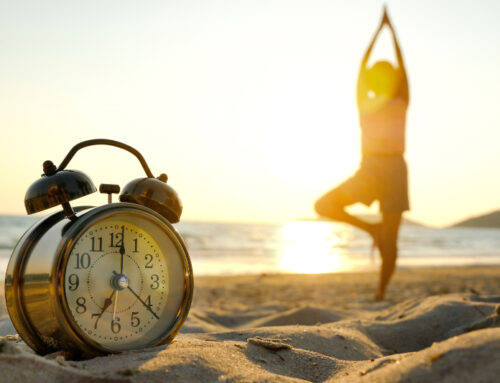Seasonal Affective Disorder can impact anyone. As the fall/winter months continue on, it’s important to check in with yourself to see if you need additional help in managing your symptoms.
Bright Light Therapy
If you find the darker, gloomy weather of fall unpalatable, there are ways you can continue to enjoy light from the comfort of your home. Bright light therapy is a common treatment for SAD. It’s exposure to artificial light to help keep your circadian rhythm on track. Typically you can do this with a light therapy box. These devices give off light that mimics sunshine and helps in managing your Seasonal Affective Disorder. You sit in front of the light for about 20-30 minutes per day. It helps release a chemical in your brain that boosts your mood and eases depression symptoms.
Talk to your Doctor
If you’re struggling hard to function at a normal level, you should consider talking to your doctor. They will be able to provide you with resources that can help you combat your seasonal depression symptoms. This could look like a referral to therapy or even suggesting some anti-depressants. Talk with a medical professional about your options. You will be glad you did!
Continue to Socialize
Maintaining a social life while dealing with seasonal depression is much easier said than done. It can be tempting to give in to your symptoms and sort of hibernate during the cold months. However, this will only make your depression worse. Although it might feel like a massive challenge, it’s important to continue to socialize and make plans with loved ones throughout the colder months. It will give you something to look forward to. And keep you interacting with people who love and care about you.
Create and Stick to a Schedule
Sticking to a schedule is a great tool for combating depression. An article written by Beth W. Orenstein and Michelle Pugle elaborates by saying, “People who live with SAD often have trouble sleeping at night and getting up in the morning. Maintaining a regular schedule improves sleep, which can help alleviate symptoms of seasonal depression. Keeping a regular schedule will also expose you to light at consistent and predictable times. And eating at regular intervals can help you avoid overeating. Many people who live with SAD find they gain weight in the winter, according to the Mayo Clinic.”

Vitamin D
It’s extremely important you’re getting enough Vitamin D throughout the fall/winter months. Vitamin D deficiency is linked to a whole host of issues including extreme fatigue, poor sleep, muscle weakness, depression, getting sick more easily and more. If you aren’t getting enough Vitamin D naturally, talk to your doctor about starting a supplement. This will make a lot of difference in how you feel each day!
It’s important to prepare yourself and your mind for the shift into fall and winter. Doing so will help you be proactive in treating your SAD symptoms.




